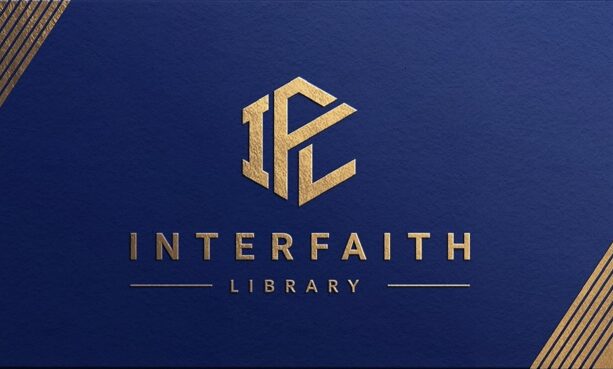PLEASE DONATE!!! ⬅️ (by pressing this link). This will help improve our Jewish information.
What Is Religion & Why Do We Adhere To One?
Religion is a cultural system of behavior and practices, world views, sacred texts, holy places, ethics, and societal organizations that relate humanity to what an anthropologist may called “an order of existence”. Different religions may or may not contain various elements, ranging from the “divine”, “sacred things”, “faith”, a “omnipotent being or beings” or some sort of “ultimacy and transcendence” that will provide norms and power for the rest of life.
Judaism can chronologically be debated as being the first “monotheistic” religion, as we do have evidence of some ancient peoples, such as the Egyptians that did believe in one Supreme God. However, as we understand monotheism, that is specifically Ethical Monotheism in our lives, this is where we actually begin our discussion. Namely, we as Ethical Monotheists believe that in our belief in One Supreme God, we find a model for our own behaviors and lives to be followed and instructions given for such. So fundamentally, what is this religion?
Cultural ethnographers and anthropologists have explained and taught that every culture and group of people has basic needs. These needs are food, shelter, clothing, occupation, recreation, and something to believe in to help them find meaning in all they do in our temporal world.
We know that belief systems characterize the human family from the beginning. Belief in multiple forces, which were called deities, and their relationships and domains always characterized various groupings. We see hinted and actual references to these systems in the first chapters of Genesis.
With Abraham following the ONE GOD, in Chapter Twelve of Genesis, called Bereshit in the Jewish community, we have the birth of monotheism, the belief in THE ONE CREATOR GOD that we speak of in the very beginning of the Creation narrative. From Abraham and his sons and his grandsons, we come to the belief systems we know as Judaism, Christianity and Islam. Not to exclude the Ba’hai which was born much later as the lesser known monotheistic sibling in our family.
How do we describe and talk about God where there are no words to do so?
The challenge described here by Rabbi Dweck addresses the limitations of language which are in our human condition and reality finite by nature while God is Infinite; in fact, one of the 70 different names and facets of God in Jewish texts is אין סוף / Ain Sof or INFINITY. Yet, as human beings who are relational and have a need to articulate the nature of and those with whom we have relationships, this is often seen as unsatisfying.
Rabbi Michael Skobac explains this challenge:
To go one step further, when I (SSE) teach, I do not use pronouns or “human equivocal language” to refer to G-d. I do not use gender pronouns, because God is no more contained by a gender definition then color of eyes, height, etc. The way I see it, we have enough challenges in speaking about God and trying to contain this Infinity in finite and limited words, why add a needless problem!
God as the Creator God
The explanation of why we begin the Torah with the explanation (albeit cursory) of Creation of All and the stories of our Patriarchs and Matriarchs is to indicate that the ONE AND ONLY ONE GOD in our Monotheistic religions is also THE CREATOR GOD who began everything as we know it. As for the stories of our imperfect families, there are lessons here, namely:
- We are NOT all the same.
- There are lessons for us to learn from each other.
- We as human beings have fallibilities; WE ALL DO!
- The process of our faith journeys is to bring us closer to God within the reality of our own shortcomings.
Here is Rabbi Manis Friedman bringing together the reasons for the construction of the Torah and why/how the book of Genesis begins with the story of Creation of All that We Know:
Rabbi Friedman’s salient point that this world is to be the dwelling place for all that God created and that this is how we bring God into the world is the answer to INFINITY that cannot be grasped. Namely, we bring pieces of God into our actions, our relationships with other and into all that we do through our honest INTENTIONALITY.
As is explored in the following section on Jewish Studies 101, laws and practices are critical to Jewish life and understanding. It is believed as a basic precept that God gave Torah to “show us the way” and that we are to live this life according to that Torah, defined as “instruction, teaching or showing how things are to be done.” In this context, each Jew relates DIRECTLY to God and is responsible for their relationship to God. Notice these statements from two of the Five Books of Moses, reflecting this teaching which is often amplified.
“You shall all be to Me a kingdom of priests and a holy nation.” Exodus/Shemot: chapter 19, verse 6 (19:6)
“Learn and observe [the Torah] for it is your wisdom and understanding in the eyes of the nations, who will hear of all these laws and proclaim that this is truly a great, wise and understanding nation.” Deuteronomy/Devarim: 4:6
So, how do we emulate G-d? Always a fair question. Enter the Mitzvot, or the commanded actions that dictate the day and actions of a Jewish adherent in what we eat, what we wear, how we relate to each other, regard others, practice social justice and so much more.
Here is one example of how this is addressed in the Talmud, in Sotah 14a:
And Rabbi Ḥama, son of Rabbi Ḥanina, says: What is the meaning of that which is written: “After the Lord your God shall you walk, and Him shall you fear, and His commandments shall you keep, and unto His voice shall you hearken, and Him shall you serve, and unto Him shall you cleave” (Deuteronomy 13:5)? But is it actually possible for a person to follow the Divine Presence? But hasn’t it already been stated: “For the Lord your God is a devouring fire, a jealous God” (Deuteronomy 4:24), and one cannot approach fire. He explains: Rather, the meaning is that one should follow the attributes of the Holy One, Blessed be He. He provides several examples. Just as He clothes the naked, as it is written: “And the Lord God made for Adam and for his wife garments of skin, and clothed them” (Genesis 3:21), so too, should you clothe the naked. Just as the Holy One, Blessed be He, visits the sick, as it is written with regard to God’s appearing to Abraham following his circumcision: “And the Lord appeared unto him by the terebinths of Mamre” (Genesis 18:1), so too, should you visit the sick. Just as the Holy One, Blessed be He, consoles mourners, as it is written: “And it came to pass after the death of Abraham, that God blessed Isaac his son” (Genesis 25:11), so too, should you console mourners. Just as the Holy One, Blessed be He, buried the dead, as it is written: “And he was buried in the valley in the land of Moab” (Deuteronomy 34:6), so too, should you bury the dead. This text shows that we as human beings with our limitations cannot possibly understand God in God’s totality so we engage in actions that are modeled for us in the Torah narrative. Here we find the meaning and understanding of the many commanded actions understood as Mitzvot.
Our goal here at The Interfaith Library is not so much to provide scholarly sources and discussion for Jewish scholars and learners as much as a general picture of Judaism and Jews for others to consider. Therefore, we have videos on this page both from an internal understanding of Judaism as well as external narratives. Please be mindful of the difference between the two.
As will be repeated over and over again, Interfaith Library’s primary intent is to be an objective guide. Our only “value statements” are: (1) religion is interesting; (2) knowledge is good.Do
All Three Religions Share The Same Line Of Prophet
We here at Interfaith Library created this library to open dialogue, to be informative, educational and interactive; allowing for everyone to have an opportunity to grow within his/her belief/faith.
[Dr. Saundra Sterling Epstein: Jewish Librarian]

